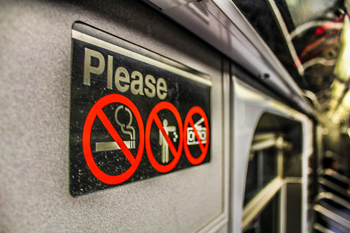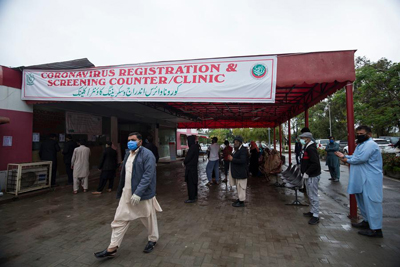Make tobacco awareness education part of school and college curricula

Tobacco use remains a significant public health challenge in Pakistan, with rising youth smoking rates and the persistent threat of tobacco-related diseases. Young people continue to be vulnerable to the lure of cigarettes. In Pakistan, 10.7% of youth (ages 13-15) use tobacco products, with 7.2% smoking tobacco and 5.3% using smokeless tobacco. Alarmingly, among youth who have ever smoked, nearly 40% first tried a cigarette before age 10, and 37.8% of youth (ages 13-15) are exposed to secondhand smoke in public places, while 21% are exposed at home.
One of the most effective long-term strategies to counter this trend is the integration of education on the adverse effects of tobacco use into school and college curricula. Several countries have integrated tobacco control awareness into their school curricula to educate young people about the dangers of smoking and nicotine addiction.
Many states in the United States have incorporated tobacco prevention programs into health education curricula, focusing on the risks of smoking and vaping. The CDC’s “Youth Tobacco Prevention” initiatives provide schools with resources to educate students. As part of its Smoke-Free 2025 goal, New Zealand has included tobacco awareness in school health education, teaching students about the harmful effects of smoking and the country’s strict tobacco control policies. Similarly, in Kazakhstan, WHO launched a toolkit to help schools create tobacco- and nicotine-free environments, educating students on the dangers of smoking and industry tactics. The WHO’s Manual on Tobacco Control in Schools provides guidance for integrating tobacco education into curricula in countries across South-East Asia, focusing on skill-based health education. Several European nations have adopted WHO’s tobacco-free school policies, ensuring that students receive structured education on tobacco harms and prevention strategies. These efforts highlight the importance of early intervention through education to reduce youth smoking rates and promote healthier lifestyles.
Though anti-smoking policies exist, the lack of systematic education on tobacco harms leaves young minds in Pakistan unprotected against misinformation and peer influence. By embedding tobacco education within science, health, and social studies subjects, students can develop a deep, evidence-based understanding of the dangers of tobacco. Early awareness can prevent experimentation, equip youth with knowledge to resist social pressure, and ultimately contribute to lower national smoking rates.
The federal and provincial ministries of Education and Health need to collaborate to introduce mandatory tobacco awareness modules in school health curricula. The curricula should be designed with age-specific lesson plans to introduce tobacco education progressively from primary to higher education levels. There is a need to utilize interactive learning methods—debates, storytelling, project-based learning, and media analysis—to make lessons engaging. Students should be informed scientifically about the adverse effects of smoking and how it can ruin lives.
Curriculum modules should include lessons on the chemical composition of tobacco, its carcinogenic properties, and the long-term impact on vital organs. Students must learn how smoking and tobacco-related products contribute to lung disease, cardiovascular conditions, and addiction.
Interactive discussions on peer pressure, media influence, and deceptive marketing strategies can help students identify manipulative tactics. Schools should facilitate debates and role-play activities to empower students to resist tobacco usage. Lessons on the financial burden of tobacco consumption—both for individuals and the healthcare system—can discourage smoking. Understanding Pakistan's tobacco control laws, taxation policies, and smoking bans can encourage civic responsibility among young learners.
Education plays a pivotal role in tobacco harm reduction, shaping the perspectives and behaviors of future generations. By embedding evidence-based, engaging, and interactive content on tobacco’s dangers in school and college curricula, Pakistan can take significant strides in protecting youth and curbing smoking-related health crises. Ensuring that students are well-informed will empower them to make health-conscious choices, contributing to a tobacco-free future for the nation.
اردو مضامین
ترک سگریٹ نوشی کی مخالفت کیوں؟، ارشد رضوی

پاکستان سن 2002 میں ورلڈ ہیلتھ آرگنائزیشن ( ڈبلیو ایچ او ) کے فریم ورک کنوینشن آن ٹوبیکو کنٹرول (FCTC) کا رکن بنا تھا، تب سے اب ( 2023 ) تک اکیس سال گزر چکے ہیں پاکستان (اور دنیا بھر) میں سگریٹ نوشوں میں اضافہ ہی ہوا ہے۔ ایک رائے کے مطابق دو کروڑ نوے لاکھ ( 29,000,000 ) جبکہ بعض رپورٹس تین کروڑ دس لاکھ ( 31,000,000 ) سگریٹ نوشوں کی موجودگی کی بات کرتی ہیں، اگر پچیس کروڑ کی آبادی مان لی جائے تو پاکستان میں 12 فیصد آبادی تمباکو استعمال کرتی ہے۔
ترک سگریٹ نوشی میں مدد گار متبادل، ارشد رضوی

سگریٹ یا تمباکو نوشی کے نقصان دہ اثرات کے بارے میں ستر سال قبل ہونے والی ایک سٹڈ ی میں بتایا گیا تھاتب سے اب تک دنیا میں کروڑوں لوگ تمباکو سے متعلق بیماریوں کے باعث موت کی تاریک وادی میں جا چکے ہیں
صحت، تمباکو اور ریونیو، ارشد رضوی

تمباکو نوشی کا انسان سے رشتہ بہت پرانا ہے۔ تمباکو اور اس سے متعلق مصنوعات کی طویل تاریخ ہے جو 6000سال قبل مسیح میں ملتی ہے۔مقامی امریکیوں کے بارے میں کہا جاتا ہے کہ انہوں نے پہلے تمباکو کی کاشت شروع کی اور یہ 6000سال قبل مسیح میں ہی ہوا۔
انسانی صحت اور عالمی ادارہ صحت، ارشد رضوی

اگر عالمی ادارہ صحت کچھ مختلف طرزِ عمل اختیار نہیں کرتا اور تمباکو پالیسی میں جدّت کو قبول نہیں کرتاتو ادارہ دل، کینسر اور پھیپھڑوں کے امراض میں کمی کے اہداف کے حصول میں بہت پیچھے رہ جائے گا۔
جو فرد سگریٹ نوشی ترک کرنا چاہتا ہے اس کی نیکوٹین کی طلب اور نفسیات کو سامنے رکھتے ہوئے کونسلنگ کی ضرورت ہے، ڈاکٹر احسن لطیف

اگر ہم چاہتے ہیں کہ سگریٹ نوشی ختم ہو جائے تو سگریٹ پینے والوں کواس بارے میں تمام بحث میں سب سے آگے ہونا چاہئے تاکہ وہ اپنی ضرورتوں کا خیال رکھ سکیں۔
ما قبل کورونا اور ما بعد، ارشد رضوی

کورونا کے مابعد اثرات میں ایک خوفناک ترین اثر بڑے پیمانے پر دنیا کی آبادی کے ایک بڑے حصے کا خطِ غربت سے نیچے گِرنے کا اندیشہ ہے جس کے نتیجے میں بے روزگاری اور غربت میں غیر معمولی اضافہ ہو گا۔
OUR PROJECTS
Pakistan is a country with heavy use of tobacco. With more than 24 million...
Read MoreRESEARCH ARTICLES
The Birth of Harm Reduction Informs the World's Need for Safer Nicotine...
Read MoreWHAT WE DO?
Alternative Research Initiative (ARI) works to provide researched-based solutions...
Read More
